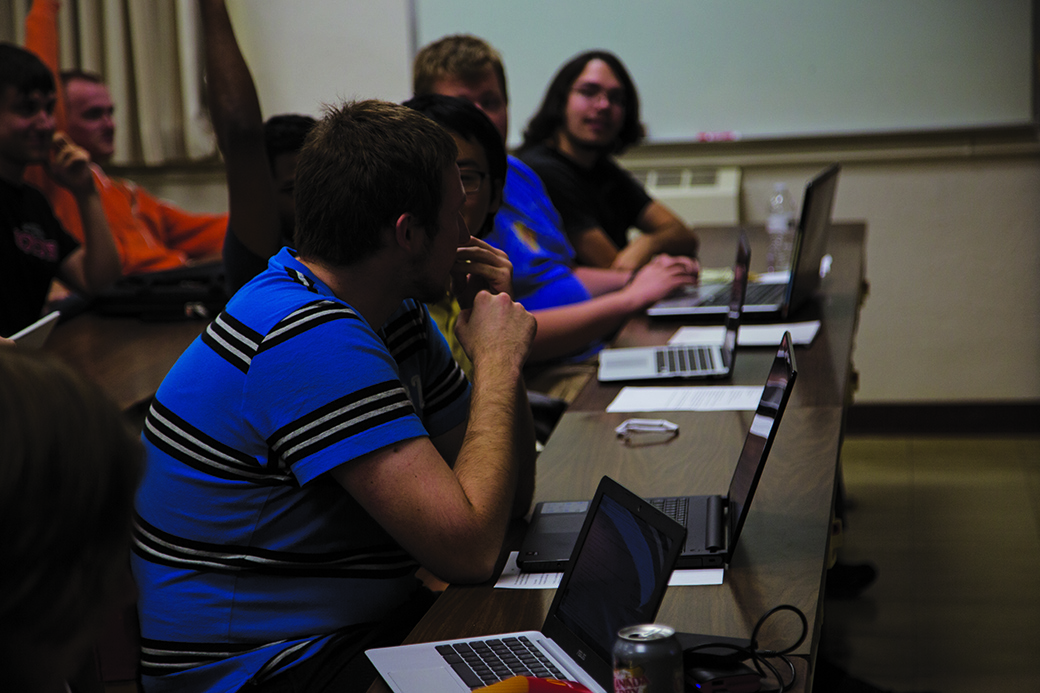
New coding club gets funding, looks to compete
New to USD’s campus this year is the Coding Club – a student organization looking to improve its knowledge in the computer science field.
The club recently gained funding from the Student Government Association to help pay for upcoming competitions, in which the club designs and solves programming-based problems.
Working to recruit members, the new club hopes to advance basic level programmers to the next level through teachings provided by club adviser Doug Goodman, associate professor of computer science.
The club started after students expressed interest to participate in a coding competition, something Goodman has been pushing for the past few years.
“This is the first time they have been interested in doing it for an extended period of time,” he said.
The club’s first competition will be held in mid-November. The location of the competition is still in the works, but USD is a potential host, Erickson said.
During competitions, three-person teams have five hours to complete eight to 10 word problems.
Erickson said that teams rarely complete all the problems within the five hours, as the team has to deconstruct the problems using “various different algorithms or invent(ing) them on your own.”
Receiving funding
Having missed the deadline this past spring to be recognized as a campus organization and receive SGA funding, Coding Club members worked over the summer to submit a special SGA appropriation proposal.
This process involved applying for special appropriations by submitting an application and completing a budget request to show what the funds, if allocated, would be used for, SGA Senator Jordan Hanson said.
The Coding Club was allocated $225 of the $600 requested to help off-set recruitment and contest expenses, SGA External Communications Manager Robert Peterson said.
SGA has also worked with members of the USD chapter of Association for Computing Machinery, some of whom started the Coding Club, to regain funding. ACM lost funding because of an outdated constitution and is in the process of reapplying for a renewal of funding.
“Until we had modified the constitution, we became ineligible for funding,” Erickson said. “The process of modifying the ACM constitution was complicated because we had to get it OK’d by the national chapter.”
With around 40 members, mainly of which are upperclassmen, ACM is eager to acquire funding after regaining eligibility.
Valuable skills
So far, the Coding Club has 20 members, said senior Ben Erickson, the club’s vice president.
Erickson said he wants to provide valuable skills to both the club’s experienced and amateur members. He said having the ability to program is quickly becoming valuable in nearly every career.
“It doesn’t have to be a computer science degree, having coding on your resume will benefit you greatly,” Erickson said.
Goodman agreed, and said learning more about computer science is beneficial to any student, regardless of major.
“Computer science drives the world right now,” he said.
(Photo: Members of the new coding club discuss their upcoming competition during one of their weekly meetings on Sept. 11. John Fritzie-Gasper / The Volante)

